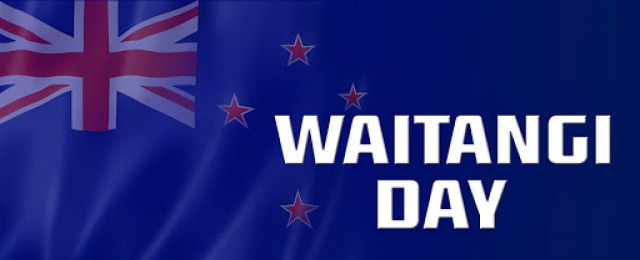- About Us
-
Trips
-
 Kiwi-Style Hiking
Kiwi-Style Hiking
-
 Great Walks
Great Walks
-
 Hiking Tours
Hiking Tours
-
 Alpine Hikes
Alpine Hikes
-
 Custom Groups
Custom Groups
- Huayhuash Trek
- Family Northern Explorer
- Family Southern Explorer
- Lake Waikaremoana Hike
- Women's Custom Tours
- Women's Southern Wilderness
- Coast, Canyons and Mountains
- Coastal Wanderer Custom Tour
- Don't Cross the Ladies
- Secret South Custom Tour
- Tekapo Hike
- West Coast Custom Tour
- World Heritage Custom Tour
-
- Blog
- Shortlist
- About Us
- Trips
- Blog
- Shortlist

Feb 6, 2018
Waitangi Day is a public holiday held on the 6th February every year. We have this public holiday to commemorate the signing of New Zealand's founding document - the Treaty of Waitangi. The treaty was signed in 1840 by representatives of the British Crown and over 500 Māori chiefs.
In 1840 the relationship between Māori and European settlers was not what you would call harmonious. Each Māori tribe lived by laws set by a chief (rangatira). The chief's authority related to, and was limited by, his tribal boundary. However, the British settlers often disregarded Māori tribal laws. This disregard of the tribal laws lead to conflict between the Māori and Europeans.
The intention of the Treaty of Waitangi was to establish a government to maintain peace and order. However, as most Māori at the time could not speak or understand English the Treaty needed to be translated. Unfortunately there were variations in meaning between the two documents - the English version and the Māori version. The variations in the treaties and understanding of the obligations outlined in the Treaty meant that there were, and still are, disagreements regarding to the rights and obligations laid out in the Treaty of Waitangi.
Waitangi Day first became a public holiday in 1974, but was first officially commemorated in 1934. Waitangi Day has official celebrations each year on the Waitangi Treaty Grounds in the Bay of Islands. It is a day when all of us as New Zealander's can reflect on the Treaty.








